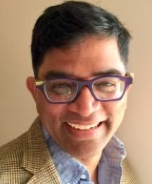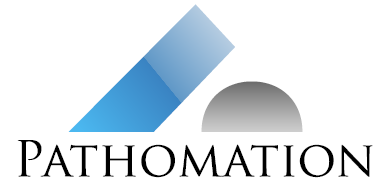CPW2018 - Computational Pathology Workshop - second edition

Keynote speakers
 Thomas Fuchs
Thomas Fuchs
Memorial Sloan Kettering Cancer Center
Thomas Fuchs heads the Computational Pathology and Medical Machine Learning Lab at Memorial Sloan Kettering Cancer Center and teaches biomedical machine learning as associate professor at Weill-Cornell in New York City. He is director of The Warren Alpert Center for Digital and Computational Pathology. His passion for the tremendous potential of artificial intelligence in medicine resulted in more than 90 publications spanning a range of topics from novel deep learning and Bayesian approaches for quantification to real-world applications in the clinic. Previously, Thomas was a rocket scientist at NASA's Jet Propulsion Laboratory, where he developed autonomous computer vision systems for space exploration. He completed his Postdoc at the California Institute of Technology after receiving his PhD in machine learning from ETH Zurich.
Keynote abstract available here
 Chakra Chennubhotla
Chakra Chennubhotla
University of Pittsburgh
S. Chakra Chennubhotla, PhD, is an Associate Professor in the Department of Computational and Systems Biology. His research expertise and interests are in the areas of computational systems pathology and spatial tumor biology, including generative and evolutionary models of spatial intra-tumor heterogeneity. His group is developing a computational system pathology and machine learning platform to gain mechanistic understanding of metastasis in cancer. His previous work includes advancing graph-theoretic computer vision and machine learning algorithms for understanding high-dimensional image and signal data.
Keynote abstract available here
 Derek Magee
Derek Magee
University of Leeds
Derek's research is based on the practical application of model based machine vision in domains such as medical image analysis. His particular interest is in statistical and logical modelling of spatial and temporal characteristics.
Derek is involved in various research groups and institutes, including Applied Computing in Biology, Medicine and Health, Artificial Intelligence, and WELMEC
Keynote abstract available here
Keynote speakers from the 2016 edition
Jeroen van der Laak
UMC Radboud / Radboud University Medical Center
Dr. van der Laak leads a research group on digital pathology. This research aims to extract information from scanned histopathological sections, to aid the diagnostic process. To this end, the group develops methods both in terms of laboratory procedures (e.g. special staining techniques), digital slide scanning and image analysis and pattern recognition software. Current projects focus on automated recognition and characterization of breast cancer, detection of metastases in sentinel lymph nodes and quantification of tumor infiltrating lymphocytes in breast and colon cancer. Dr van der Laak has a background in computer science and is assistant professor in the department of Pathology. His research group is embedded in the Radiology diagnostic image analysis group (DIAG), of which he is a faculty member. Dr van der Laak co-authored over 80 peer-reviewed scientific papers. He is a member of the 'stuurgroep digitale beelduitwisseling' of the Dutch federation for Pathology (NVVP).
Keynote abstract available here
Jeffrey Fine
Magee-Womens Hospital of UPMC
Jeffrey Fine is a breast and gynecologic pathologist at the University of Pittsburgh. He is also director of the Advanced Imaging and Image Analysis subdivision (Pathology Informatics). Dr. Fine has fellowship training in Pathology Informatics, including a Certificate in Biomedical Informatics (University of Pittsburgh). He is AP/CP board certified (residency at Cleveland Clinic) and earned his M.D. at Ohio State University. Dr. Fine’s research interests include in vivo and ex vivo microscopy (IVM and EVM), pathologists’ computer assisted diagnosis (pCAD), image analysis, 3D specimen imaging, Whole Slide Imaging (WSI), telepathology, etc. He strongly believes that automated workflow (chauffeured digital pathology) will enable pathologists to spend less time on sign-out tasks, and more time actively contributing to patient care teams.
Keynote abstract available here
Niels Grabe
Hamamatsu Tissue Imaging and Analysis Center (BIOQUANT, Uni Heidelberg)
Prof. Dr. Niels Grabe is Scientific Director of the Hamamatsu Tissue Imaging and Analysis Center at the University Heidelberg, scientific group leader at the National Center for Tumor Diseases and the Institute of Pathology, University Hospital Heidelberg. He has organized one of the first conference series on European Digital Pathology since 2009. He has published over 90 papers in international journals and is regularly presenting at Digital Pathology conferences. He is collaborating closely with the US National Cancer Institute and several industrial companies. In 2013 he founded the Steinbeis Center for Medical Systems Biology (STC-MSB) as a spin-off of the University Heidelberg. STC-MSB is developing and implementing deep and traditional machine learning based algorithms for high-throughput profiling of biomarkers in clinical trials of diagnostic and pharmaceutical industry.

